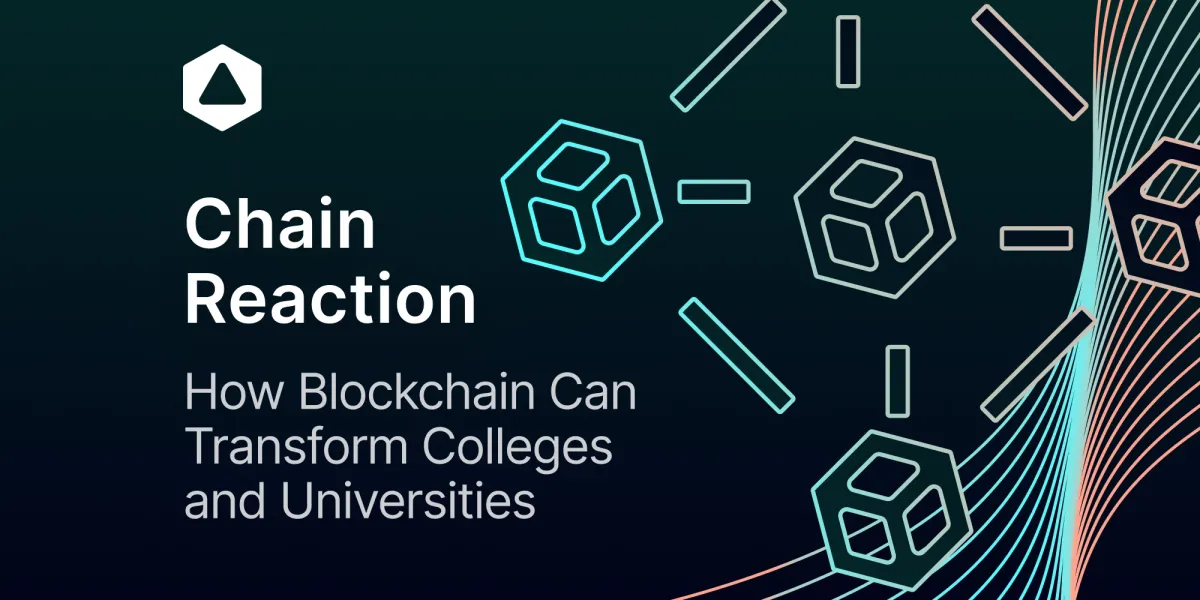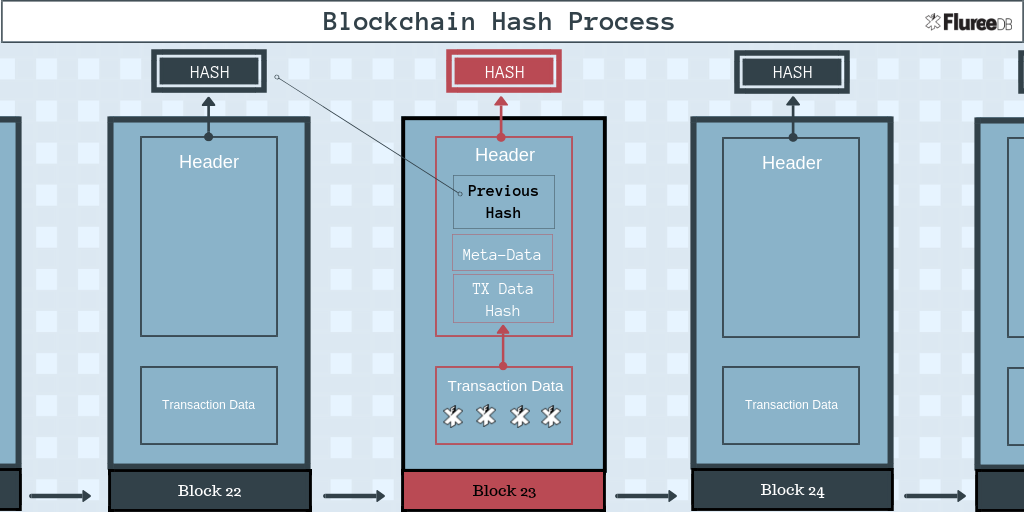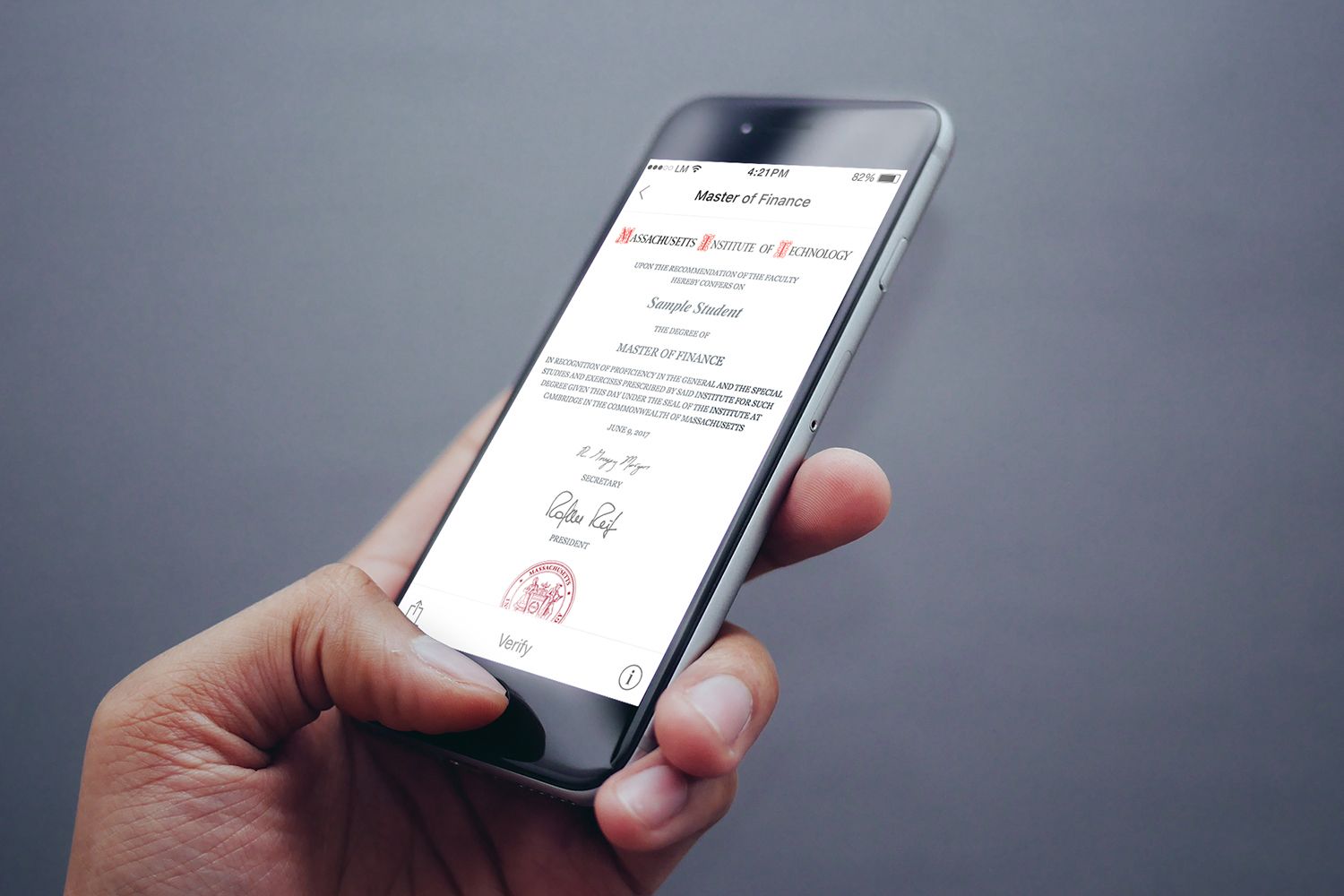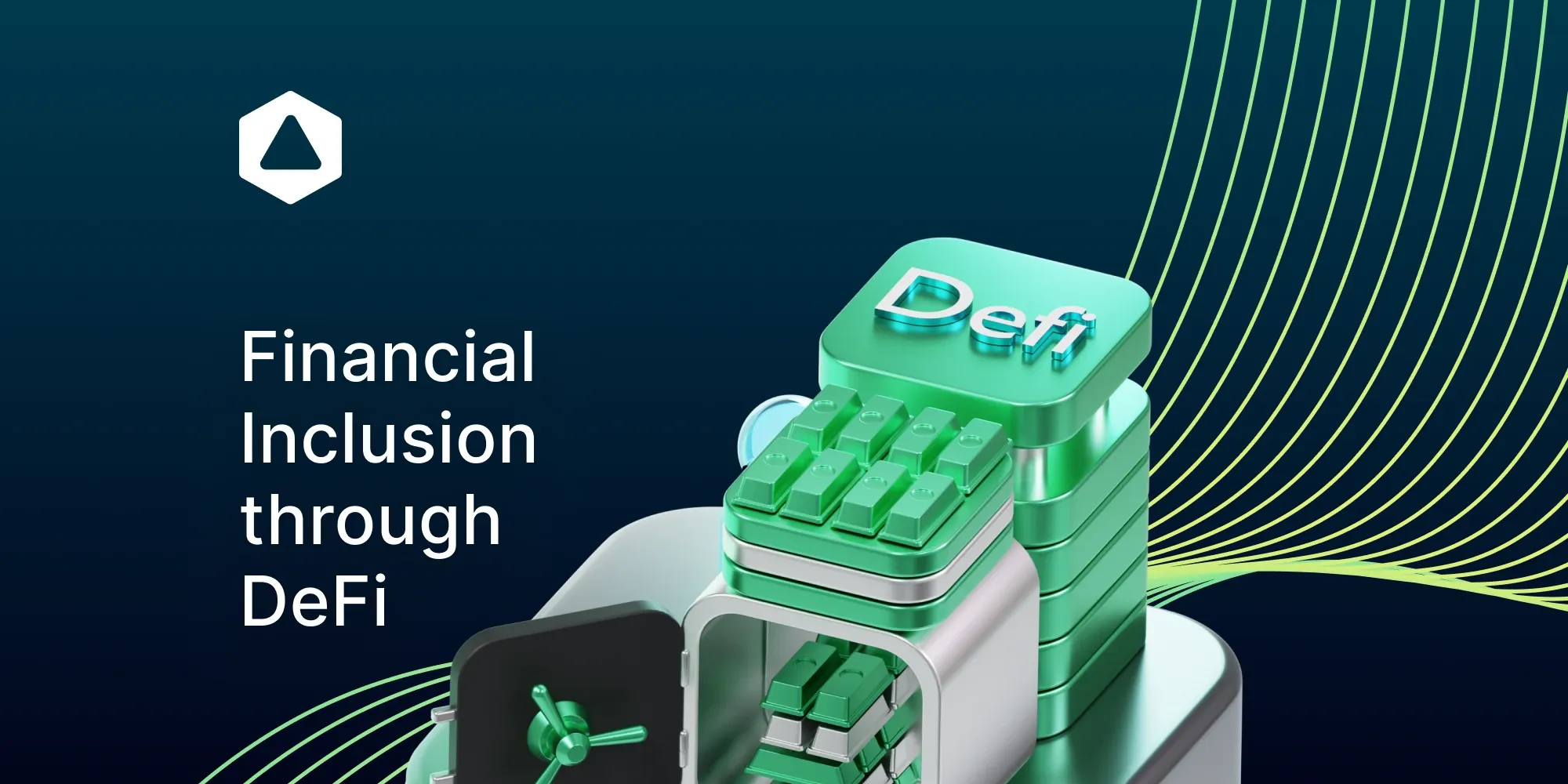Chain Reaction: How Blockchain Can Transform Colleges and Universities
Blockchain technology brings immense potential to higher education - from verifying qualifications and credentials to decentralizing university structures. This article explores the revolutionary applications of blockchain in higher ed.

In the digital age, even simple tasks as verifying qualifications can be time-consuming and expensive for organizations. However, with the coming of blockchain technology, solutions that reduce fraud and streamline the verification process can be found. And in fact, there are numerous benefits and potential applications in the fields of education and beyond. In this article, we explore its potential applications in the education sector.
Blockchain in Higher Education
Revolution seems to be everywhere, with new limits to impose only on ourselves. With the key features and workings of blockchain technology, it is just a matter of time before organizations start to adopt new digital workings.
We take a look at some of these applications enabled by the underlying technologies we are so eager to write about.
Blockchain ELI5
Blockchain enhances trust. To understand this statement better, let's use an analogy.
Imagine three children, Bob, Alice, and Sue, who have a chore sheet. Instead of trusting one person to hold the list, they distribute the responsibility. Each child has a copy of the list and updates it whenever they complete a task. The children then compare their lists and collectively agree on what chores have been done. A sound system ensures that no one can falsely claim a task has been completed.

This is blockchain in a nutshell. It's a simple, decentralized system where each member of the network is in charge of verifying the legitimacy of the others.
The Revolution of Publishing
Let's consider a future scenario where these three students, who we know have little to no money, dread the costly process of buying textbooks. Plus, with the rise of digital subscriptions, which only last a semester, and those financial burdens are increased by a lot more.
However, here comes blockchain, which fixes this by offering a solution that satisfies both students and publishers. When the poor student buys his textbooks now, he would receive a blockchain-based copy. He could read it like any other ebook, but at the end of the semester, he could also resell it to another student and transfer it to their blockchain account.
This looks risky, given the all-round plagiarism in college. But it could benefit the publishers that force students to each buy physical textbooks in order to combat these kinds of copycat behaviors, thus benefiting both students and publishers alike.
Intellectual Property Rights on Blockchains
This brings us to the decentralized recording of intellectual property (IP) rights and origins without intermediaries. Where professors can publish and timestamp their IP by hashing it to a blockchain ledger. From now on, it can be tracked for IP usage and reuse, like for academic works.
Benefits could include cost savings, disintermediation, and potential to encourage open publication by working further on their studies. However, it is not yet technologically feasible and will only be if the whole academic system goes Web3.
Digital Identity and Blockchain Verification
But not only publishers can benefit from blokchain. So is, 'identity' which is a significant pillar of the tokenization possibilities that crypto brings. In terms of digital identity, the question often remains: how does your real identity tie to your digital identity?
With blockchains, we can create self-sovereign identities equivalent to you writing on a piece of paper, "My name is John Doe." This system gives you complete control of your online identity and all your digital credentials.

Credentials on the Blockchain
It's ability to permanently record 'value' can thus be used effectively in education and the path beyond. Think about recording students' certificates. So, if someone claims to have certain qualifications, they would no longer need to physically show their paperwork, but instead show their digital identity paired with their verifications linked to it.
These smart credentials have one key innovation - immutability. They simply can't be faked or tampered with. When checked, they provide instant verification even if the issuing institution has ceased to exist. While a typical PDF of a diploma could be altered, the blockchain version cannot. If it was tampered with, an employer would see this change compared to the original and know not to hire.

Minimization of confidential student information
From the other perspective, this is also good when learners or students store their chosen shareable smart credentials on their blockchain e-portfolios. From now on they can control access to them by entities like employers and institutions, more on their own terms.
Think about linking your credentials by signing your hot wallet. If you don’t want to expose your educational background, simply revoke access and poof - your credentials are gone.
Validating Diplomas in prod...
Just like credentials, diplomas represent something of value and thus can be stored on the blockchain. This concept has already been trial run at MIT and is being used at nearly 100 universities around the world.

Potential Frauds in Education
An investigation from the FBI claims that half of the Ph.D. statistics given out in the U.S. are fake and are a billion dollar industry. Therefore, a reformation has to be done, because there have been numerous high-profile cases of fraud related to education and employment qualifications. Let's look at some of the most mind-boggling frauds in the educational sphere.
For instance, a dean at MIT had to resign after 28 years because she lied about her qualifications.

Similarly, a chief executive at Yahoo had to do the same.

A digital equivalent of the physical "badge" that verifies a person's qualifications and was given to you as a child each time you completed a task needs to be digitized. A new digital system that can significantly reduce the potential for fraud and misinformation out there in the world.
Enhancing Security...
In many universities, students gain access to buildings and online accounts through a combination of a physical card and a centralized online platform. However, this design has several flaws and is fragile in some cases.
First, this system presents a single point of failure. If the service the university uses experiences an outage, students will be unable to enter buildings using their phones or access their online accounts.
Additionally, if a hacker breaches the database, they could gain access to every username and password associated with the school, jeopardizing student identity security and possibly, if the hackers know what they are doing, the medical or financial data of targeted individuals.
Financial Inclusion
As mentioned in previous articles (below), the use cases of blockchain don’t limit themselves to digital paradigm shifts. It also offers solutions in the real world, revolving around people's financial sovereignty. With the expanding access to crypto and their lowering costs for the underbanked, as it enables inexpensive cross-border transfers.

School Funding
Now think not about the unbanked, but the unschooled - the people who don’t have access to school or adequate school buildings. Well, with the application of worldwide permissionless funding, and the use of "smart contracts", systems could automate sophisticated education funding and incentive models without too much administrative overhead.

Via this model, we could see blockchain enabling direct, lower-cost digital payments without intermediaries. This can facilitate educational funding and micropayments where, smart contracts automate release of funding based on coded conditions like performance, reducing administrative costs.
Benefits include lower barriers for underbanked students, incentive-based pay, guaranteed multi-year funding via escrow. Some universities already accept blockchain payments or are exploring blockchain payment systems.

Change Structure of Universities
With the slow downfall of institutions and college degrees that are slowly losing credibility, the lines of what makes a good university are blurring. We could say that in a more radical application of blockchain's core principles, we can mirror an ideal state, at least in code, called Decentralized Autonomous Universities.

The question we have to ask is whether the smart contracts that people have already created for Decentralized Autonomous Organizations (DAOs), some managing hundreds of millions of dollars, are sufficient to decentralize and automate various aspects of universities, fundamentally changing their structure.
Blockchain Projects Tackling These Problems
APPII was founded in 2016 and wants to use blockchain technology to revolutionize how people verify their personal credentials like identity, qualifications, and work experience.
Their vision was for individuals to have an easier time using their personal data for things like jobs, careers, travel, and finances if the data was verified on the blockchain.

Blockcerts is an open standard for creating, issuing, viewing, and verifying blockchain-based certificates and credentials. Certificates are registered on a blockchain, cryptographically signed, tamper-proof, and shareable. The goal is to give individuals the ability to possess and share their own official records and credentials. It is now an open source project that encourages collaboration from the community.

The Importance of Blockchain Education
With all the benefits that blockchain technology can bring to the educational table, we still have to preach until the message resonates far and wide. Everywhere the impact can be felt will have to be met with a framework where people can learn more about it.
The educational initiatives we embark on is a win-win situation for all involved. For the everyone involved, it provides the opportunity to learn new skills, take on challenges, and improve their lives and those of their families.
However, millions of people in developing countries lack access to such systems and have no legal digital identity or digital structure waiting to be changed. So first things first, we need to focus on working and learning together.
Conclusion
In conclusion, fake diplomas are a billion-dollar industry and have real life implications when you realize your doctor, nurse, or the architect who built your home may have never gone to school.
Blockchain can prevent such fraud and could revolutionize higher education. From verifying qualifications to decentralizing university structures to providing entry for the unbanked and unschooled to join worldwide education, it is a technology holding promise to make education more inclusive and accessible. And that's something worth exploring further.

Connect with Bitfinity Network
Bitfinity Wallet | Bitfinity Network | Twitter | Telegram | Discord | Github

*Important Disclaimer: While every effort is made on this website to provide accurate information, any opinions expressed or information disseminated do not necessarily reflect the views of Bitfinity itself. The information provided here is for general informational purposes only and should not be considered as financial advice.






Comments ()